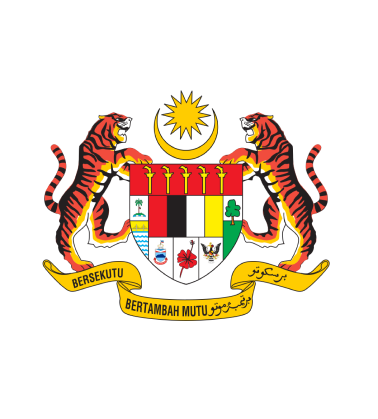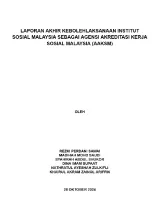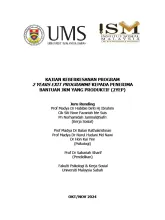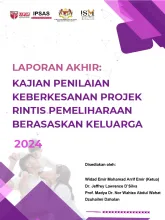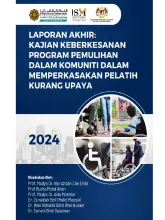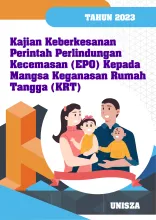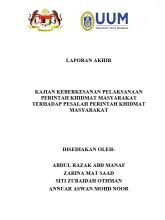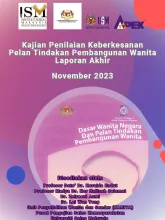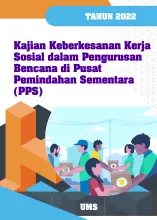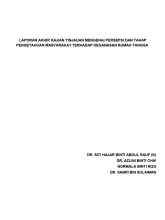Feasibility Study of ISM as a Social Work Accreditation Agency in Malaysia
The demand from stakeholders for courses and training related to Social Work is increasing daily. Consequently, there is an urgent need for the establishment of an accreditation agency to regulate and ensure the quality of these courses and training. The primary objective of this study was to assess the feasibility of the Malaysian Social Institute (ISM) as the Social Work Accreditation Agency of Malaysia (AAKSM).
Evaluation Study on the Implementation of the 2Years Exit Policy (2YEP)
The 2YEP programme was implemented using a productive welfare approach, empowering clients to enhance their functionality towards independent living and income generation, eliminating their dependence on JKM assistance as a means of livelihood (Department of Social Welfare, 2016). Through this programme, clients received support and capital assistance amounting to RM2,700.00 to start or expand existing businesses. Clients were guided and monitored continuously to ensure the success of their entrepreneurial endeavours.
Evaluation Study on the Effectiveness of the Pilot Family-Based Care (FBC) Preservation Project
This study evaluated the effectiveness of the pilot FBC project, introduced at four main locations in Malaysia since 2019. It focused on children categorised as low to high risk and examined various aspects influencing the programme’s outcomes. These aspects included the knowledge and skills of Department of Social Welfare (JKM) officers responsible for implementing FBC in the field, public understanding and acceptance of the programme, and the effectiveness of implementation methods (SOP) and applicable laws.
Evaluation Study on the Effectiveness of the Community-Based Rehabilitation (CBR) Programme
This study focused on several states with a high number of CBR centres, representing five zones in Malaysia: Perak (Northern Zone), Selangor (Central Zone), Johor (Southern Zone), Pahang (Eastern Zone), and Sarawak (East Malaysia Zone). The assignment distribution among team members was based on these five states as determined by the Malaysian Social Institute. The Focus Group Discussions were led by the principal researcher.
Effectiveness of the Emergency Protection Order (EPO) for Domestic Violence Victims
Domestic violence (DV) is a crime within the community. Statistics from the Royal Malaysia Police (PDRM) recorded 5,260 DV cases in 2020, 7,468 cases in 2021, 6,540 cases in 2022, and 3,640 cases up to August 2023. There are three measures implemented in the country to assist DV victims: the Interim Protection Order (IPO), Protection Order (PO), and Emergency Protection Order (EPO). However, this study focuses solely on the EPO.
Effectiveness of the Community Service Programme on Community Service Offenders
The primary objective of this study was to evaluate the effectiveness of the implementation of the Community Service Programme (PKM) on PKM offenders.
Effectiveness of the Women’s Development Action Plan
The National Policy on Women (DWN), revised in 2009, explicitly upholds the aspiration to achieve gender equality and balanced, sustainable national development. It also draws inspiration from Malaysia's commitments to several international instruments, including CEDAW, the Convention on the Rights of the Child (CRC), the Millennium Development Goals (MDGs), as well as the Putrajaya Declaration and Programme of Action on the Advancement of Women in NAM Member States.
Effectiveness of Social Work in Disaster Management by the Department of Social Welfare (JKM) at Temporary Relief Centres (PPS)
This study aimed to examine the effectiveness of social work in disaster management by the Department of Social Welfare (JKM) at Temporary Relief Centres (PPS). The research was conducted in Sabah, Selangor, and East Coast states such as Kelantan, Terengganu, and Pahang. The study commenced in May 2022 and concluded in September 2022.
Survey Study on Public Perception and Knowledge Levels Regarding Domestic Violence in Malaysia
A study was conducted to explore public perceptions and identify the level of knowledge regarding domestic violence in the country. Differences in perceptions and knowledge between married and unmarried individuals about domestic violence were also analysed to propose social initiatives aimed at reducing domestic violence rates. This study employed a quantitative approach through surveys, distributing questionnaires to individuals aged 18 and above across Malaysia, including Sabah and Sarawak.
